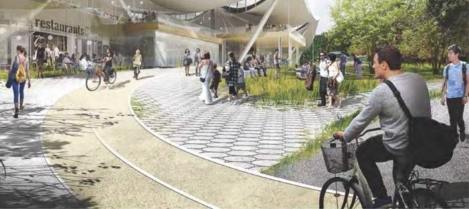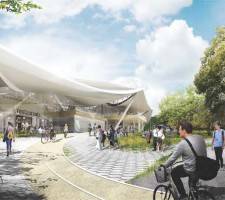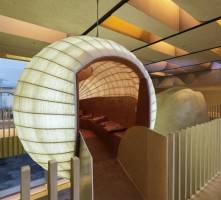April 4, 2017
Commercial property investment in London’s West End at record high 0
 Despite its reputation as the most expensive office location on Earth, commercial property investment in London’s West End has hit a record high of £1.93 billion in the first quarter of 2017, according to Cushman & Wakefield. The figure is up by 22 per cent on the five-year first quarter average, surpassing the West End’s previous record of £1.8 billion in 2013. The report suggests that interest from overseas investors and several large deals had boosted the figures, including the sale of the Facebook Campus and One Kingdom Street. Across the whole of central London, the total volume invested hit £4.18 billion – up from £3.7 billion in the same period last year and approaching the 2015 level of £4.6 billion. The City also enjoyed a strong first quarter, with total transaction volumes increasing nine per cent on the year prior to £2.25 billion.
Despite its reputation as the most expensive office location on Earth, commercial property investment in London’s West End has hit a record high of £1.93 billion in the first quarter of 2017, according to Cushman & Wakefield. The figure is up by 22 per cent on the five-year first quarter average, surpassing the West End’s previous record of £1.8 billion in 2013. The report suggests that interest from overseas investors and several large deals had boosted the figures, including the sale of the Facebook Campus and One Kingdom Street. Across the whole of central London, the total volume invested hit £4.18 billion – up from £3.7 billion in the same period last year and approaching the 2015 level of £4.6 billion. The City also enjoyed a strong first quarter, with total transaction volumes increasing nine per cent on the year prior to £2.25 billion.

















 Two of the most persistent and related structural problems facing the UK economy are the productivity and digital skills gaps. Earlier this month, the Office for National Statistics reported that there had been a further 1.2 percent fall in productivity. Part of the reason for this is that there is an underlying digital skills gap. According to a report from Barclays, nearly a third (31 percent) of working-age adults in the UK lack even basic digital problem-solving skills which places the country comfortably below the 37 percent average across OECD countries. Despite this, a mere 38 percent of UK employers offer their workers digital skills training, perhaps because on the other side of the coin, the UK ranks highly in what the report calls ‘digital empowerment’, which it defines as ‘the ability and desire to use one’s digital skills to work productively and creatively, and to have the opportunity to continually upgrade them to keep pace with changing technology’.
Two of the most persistent and related structural problems facing the UK economy are the productivity and digital skills gaps. Earlier this month, the Office for National Statistics reported that there had been a further 1.2 percent fall in productivity. Part of the reason for this is that there is an underlying digital skills gap. According to a report from Barclays, nearly a third (31 percent) of working-age adults in the UK lack even basic digital problem-solving skills which places the country comfortably below the 37 percent average across OECD countries. Despite this, a mere 38 percent of UK employers offer their workers digital skills training, perhaps because on the other side of the coin, the UK ranks highly in what the report calls ‘digital empowerment’, which it defines as ‘the ability and desire to use one’s digital skills to work productively and creatively, and to have the opportunity to continually upgrade them to keep pace with changing technology’.
 In March,
In March, 
 The shortlist for
The shortlist for 














December 8, 2016
Book review…. HQ:Nerve Centres of the World’s Leading Brands 0
by Mark Eltringham • Case studies, Comment, Workplace design
(more…)